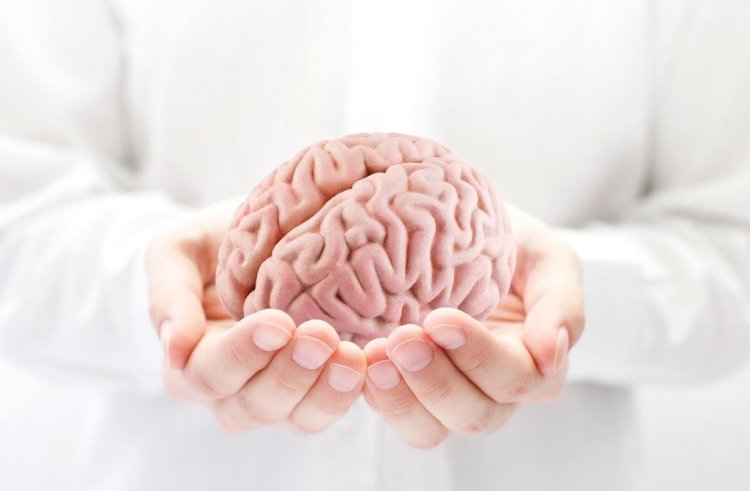Top 10 Mind-blowing psychological facts, you will be shocked to know
Top 10 Mind-blowing psychological facts, you will be shocked to know
Updated on August 16, 2022 09:45 AM by Anthony Christian
The scientific study of the features and mechanisms of a living system is referred to as physiology. Physiology is a branch of biology that studies how organisms, organ systems, independent organs, cells, and biomolecules carry out physicochemical features in living systems.
Wilhelm Wundt was a German psychologist who, in 1879, founded the first psychology laboratory in Leipzig, Germany. This is widely regarded as the establishment of psychology as a separate science from biology and philosophy.
Here are the Top 10 Mind-blowing Psychological facts
Falling in love takes only 4 minutes

It has been scientifically proven that falling in love takes only 4 minutes. In just 94 minutes, New York psychologist Professor Arthur Arun succeeded in making two total strangers fall in love in a research lab. It is a mind-blowing Psychological fact.
The experiment included four minutes of gazing into each other's eyes and 90 minutes of informal chat with predetermined questions.
Also Read: Dreams play a surreal role in our conscious and unconscious minds
'When it is about attracting a mate, first impressions are everything,' Gurgenidze says. According to a 2013 YouGov and eHarmony survey, men spend an average of 88 days (about three months) telling their companion they love them, whereas women spend an average of 134 days (four and a half months).
Add Block
'Catching' a deep sigh might help us connect

Contagious yawning and closeness in relationships have been linked in studies, and research suggests that women, who tend to score higher on empathetic tests, may be more vulnerable than men. As a result, the dominant theory holds that infectious yawning promotes empathy and social connection.
Contagious yawning occurs unwillingly when we analyze some other person's yawning; it is a type of echo phenomenon, which is the automatic replica of someone else's words (echolalia) or actions (echopraxia). Not only humans but also chimps and dogs have a proclivity for contagious yawning.
Some scientists believe that yawning has a physiological fact, such as assisting the brain in waking up or cooling down. Others argue that yawning serves as a psychosocial fact by allowing people to express how tired, bored, or emphasized they are.
Dopamine makes you obsessed with gathering information

Dopamine stimulates your desire to want, desire, seek out, and search. It raises your overall state of stimulation as well as your main objective behavior.
Dopamine stimulates your curiosity about new ideas and fuels your search for data. Feel-good experiences, such as drug use, activate your brain's reward center, which reacts by having to release dopamine. This release causes your brain to concentrate more on the expertise.
Dopamine is released by our bodies when we experience pleasurable events such as eating satisfactory food, sexual activity, or drug use. Our brain then associates dopamine release with enjoyment and develops a reward system. It is one of the psychological facts. When you eat comfort food, for example, your brain releases serotonin, which makes you feel better.
Low dopamine levels have been linked to conditions such as Parkinson's disease and depressed mood. It may also increase your susceptibility to risk-taking or continuing to develop addictive behaviors.
Also Read: intriguing-facts-about-sleep
Dopamine is an important part of survival
Dopamine is well-known for its role in regulating motivation and reward-driven behavior. People who have more dopamine feel better, and this good feeling motivates them to repeat the behavior that caused the pleasant vibe. Dopamine is an important part of survival in this way.
Add Block
There are black apples

The Black Diamond apple, so named because of its dark skin color, defies the red-and-green color scheme that most apples follow. Though this fruit may appear to be something out of a fairy tale, we can guarantee you that black apples are real and secure to eat.
Are black apples costly
According to Today, the enigmatic, purple-hued black diamond apples may only be found in the mountains of Tibet. While these apples appear to be captivating, the price tag will catch you off guard. Each apple can cost somewhere around $7 and $20, according to Taste of Home.
Where can you find black apples
Black Diamond apples are a type of Hua Niu apple (also known as Chinese Red Delicious) with a distinctive dark purple color that comes from the geography of Nyingchi in China's Tibetan Autonomous Region.
Add Block
Food tastes better when it is prepared by someone else

Sandwiches taste much better when they're made for you, according to a Carnegie Mellon University study. It is also a psychological fact that It turns out that your brain is starting to think about each active component and subconsciously level ingesting it while you're creating a sandwich.
According to new research, even water tastes sweeter when you're in love. However, not every emotion stimulates the senses. Despite analogies to the contrary, researchers report in the December 2013 issue of the journal Emotion that jealousy does not bring out bitter or sour tastes.
Our brains want us to be sluggish

According to a new study, our brains are simply wired to favor lying on the couch and that humans work harder to choose physical activity over stress relief. Some people are labeled as lazy because of their brains, according to scientists who discovered that our brains are innately drawn to a sedentary lifestyle.
The intriguing novelty of our study is that it demonstrates that this faster evasion of physical inactivity comes at a cost – enhanced participation of brain resources. 'These findings suggest that our brain is innately drawn to sedentary activities,' said Boisgontier.
Why does being lazy feel so good
Monotasking, like laziness, allows people to focus and accomplish the duties at hand more perfectly than when we try to do several things at once. When you intentionally do little, you are at your best.
Also Read: Psychological Facts About Love You Probably Didn’t Know
Add Block
We continue to believe things even when we know they are false

In one Science study, scientists fed helpers false information before revealing the truth a week later. Despite knowing the truth (now), fMRI scans revealed that the helpers did believe the misleading information about half of the time.
Confirmation bias essentially makes us believe all of our faulty beliefs even more by looking for examples to support our story. The problem is that we frequently believe something true even when there is no evidence to back it up.
When we truly believe something, it has a significant impact on our actions. These actions can then have a significant impact on the beliefs of others. To an observer, it appears unlikely that an individual would be willing to die for a belief in which she had little reason to believe.
It's one of the psychological facts that can help you become smarter.
Add Block
Fat makes up 60% of the human brain

The human brain is almost 60% fat. In recent years, we've discovered that fatty acids are among the most important substances that determine the honesty and performance of your brain.
And it's primarily composed of fat. The human brain is nearly 60% fat by total weight, and that big, powerful brain requires specific types of fats (both saturated and unsaturated) throughout life to maintain a balance of structural integrity and cell changeability.
The brain requires fat because it is an excellent electrical insulator. As a result, neurons and brain regions interact with one another via electrical impulses.
Memory formation begins in the womb

Some evidence suggests that fetal memory may begin as early as the second trimester after conception. Significant evidence for fetal memories has been discovered around 30 weeks of gestation. Fetal memory is important for familial acknowledgment and helps the child-parent bond. It is also an interesting psychological fact.
It is widely assumed that no one remembers their birth. Most folks do not recollect anything before the age of three, though some theorists (e.g., Usher and Neisser, 1993) argue that adults can recollect significant moments as early as the age of two, such as the birth of a sibling.
Also Read: 25-brain-facts-will-blow-your-mind
When people talk about suddenly recalling old memories, they are usually referring to autobiographical or irregular memories. This memory, as the name implies, stores the events of our lives. Remembering is yet another memory that can be finally remembered.
Evidence from fetal learning Classical and operant conditioning, social conditioning, and exposure learning paradigms show that the fetus has a memory. In comparison, little focus has been given to the probability density of the memory.
Why don't we remember what it's like to be in the womb
The answers to these questions may be found in how our memory system develops from infancy to adolescence and early adulthood. Our brains are not fully developed when we are born; they continue to develop and change throughout this crucial phase of our lives. Our memory improves as our brain is still developing.
Add Block
The brain cannot feel pain

In the brain, there are no small injuries. The meninges (the coverings around the brain), periosteum (the coverings on the bones), and the scalp, on the other hand, all have pain receptors. Surgery on the brain is possible, and the brain does not feel pain.
Why does the brain lack pain receptors
Nociceptors do not exist in the brain. Perhaps we evolved without nociceptors in the brain because the brain does not need to directly sense a threat to it. Other structures in our bodies perform this function instead. Even though the brain lacks nociceptors, it is still safe from harm. It is one of the psychological facts.
Also Read: 47 Mind-Blowing Psychological Facts You Should Know About Yourself
Is it possible for the brain to feel touch or pain

In a basic sense, Hannibal Lecter was incorrect about the brain's inability to feel pain. Even though the brain lacks nociceptors, it 'feels' all of our pain. This is because our brain is the organ through which we interpret, evaluate, and encounter all of our body's sensory information.
The parietal lobe, located in the middle of the brain, assists a person in identifying objects and understanding spatial relationships (where one's body is compared to objects around the person). The parietal lobe is also involved in pain and touch perception in the body.





